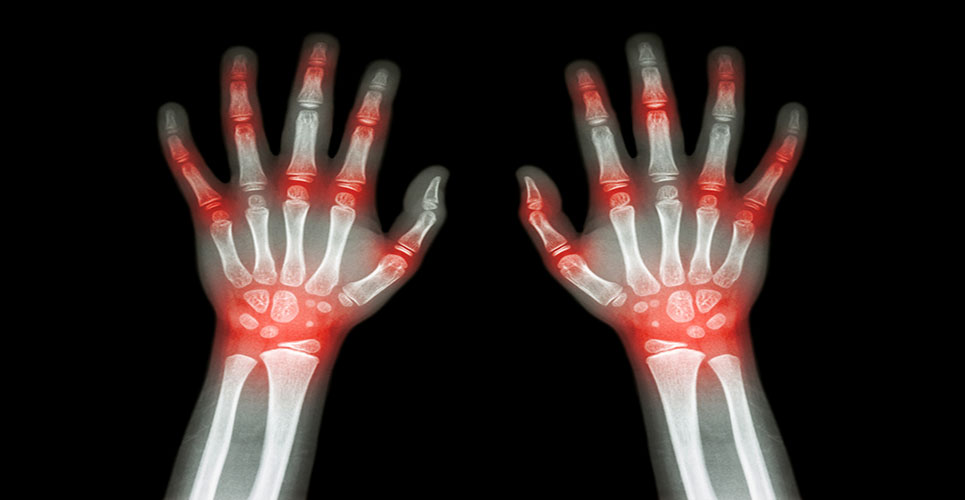As many as 20,000 patients in England and Wales with severe rheumatoid arthritis (RA) could soon benefit from RoActemra monotherapy, after the National Institute for Health and Care Excellence (NICE) issued a positive Final Appraisal Determination (FAD), recommending the medicine for use on the NHS.
As many as 20,000 patients in England and Wales with severe rheumatoid arthritis (RA) could soon benefit from RoActemra monotherapy, after the National Institute for Health and Care Excellence (NICE) issued a positive Final Appraisal Determination (FAD), recommending the medicine for use on the NHS.
The decision is based on a dossier of data that included results that show RoActemra helps almost four times as many patients achieve remission than those treated with a leading anti-TNF monotherapy. The guidance brings England and Wales in line with Scotland, where RoActemra has been available as monotherapy or in combination with methotrexate to Scottish patients for a year.
RoActemra is a first of its kind biologic and the only interleukin-6 (IL-6) receptor antagonist licensed for the treatment of patients with severe RA. Biologics are used by as many as 60% of patients who do not respond to conventional drugs (called conventional disease-modifying anti-rheumatic drugs or cDMARDs). Biologic treatments are often given in combination with methotrexate; the positive determination for RoActemra as monotherapy is an important step forward in the care of patients with severe RA as more than one third of patients are unable, or do not wish to take methotrexate.
“RA is a persistent, destructive disease which can occur at any age; if the inflammatory process is not kept under control, the disease results in significant pain and deformity, with very poor quality of life, and reduced life expectancy” said Professor Paul Emery, Arthritis Research UK Professor of Rheumatology, Chapel Allerton Hospital, Leeds. “To keep the disease under control, conventional drugs are generally used initially. However, they may be poorly tolerated or ineffective. In such cases, the availability of newer biologic treatments, which work differently to suppress the disease are crucial, and broadening the treatment options for patients with severe RA is vital in controlling the disease. In this respect, the approval of RoActemra monotherapy provides clinicians and patients with a significant new option to help manage the symptoms of severe RA.”
RoActemra monotherapy has been recommended by NICE, in addition to its current use in combination with methotrexate, for the treatment of patients with severe RA whose disease has not responded to intensive therapy with a combination of cDMARDs.
Data from a key Phase IV trial (ADACTA), which formed part of the submission to NICE, showed that RoActemra monotherapy helps almost four times as many severe RA patients, for whom methotrexate is deemed inappropriate, achieve remission compared to patients treated with a commonly used anti-TNF monotherapy, adalimumab (DAS28<2.6 (remission) 39.9% versus 10.5%, CI 3.1-10.3, p<0.0001). In addition, mean change of DAS28 was significantly greater for RoActemra (-3.3) compared with adalimumab (-1.8) (difference -1.5, CI -1.8 to -1.1, p<0.0001), highlighting the superiority of RoActemra monotherapy over adalimumab monotherapy for reduction of signs and symptoms of RA. The most commonly reported adverse events for RoActemra are upper respiratory tract infections and nasopharyngitis (common cold). The number of serious adverse events was similar between the medicines.
Senam Beckley-Kartey, Immunology Country Medical Leader, Roche said: “We are delighted that NICE, as part of its re-assessment of seven biologics currently available on the NHS, has decided to widen access to RoActemra for patients with severe RA and extend its use into the monotherapy setting. However, while NICE has maintained that biologics should be available to those patients most severely affected by RA, we do feel that NICE has missed an opportunity to extend the use of these medicines for patients with moderate disease, who still experience painful and debilitating symptoms. We will continue to work with NICE to ensure that no patient misses out on the treatments they need now and in the future.”

